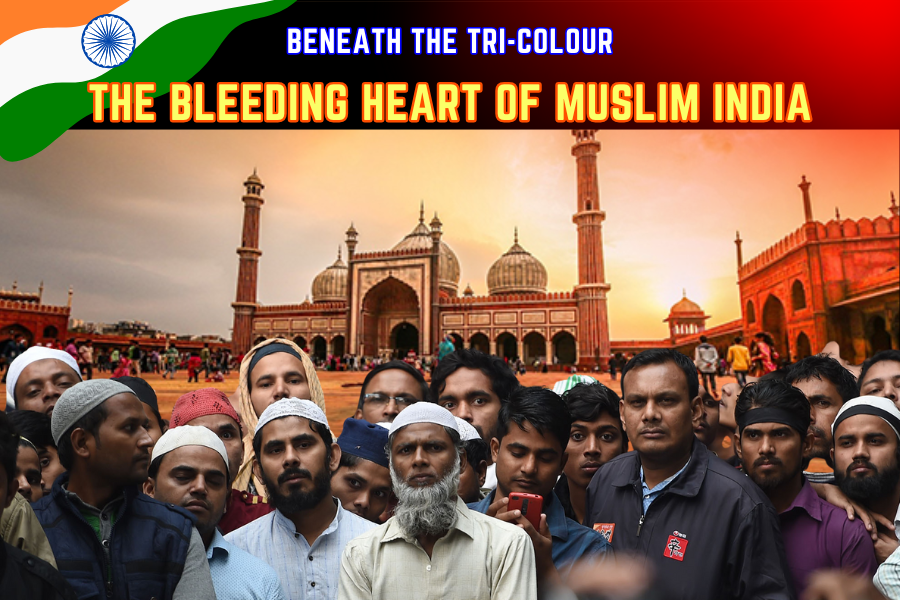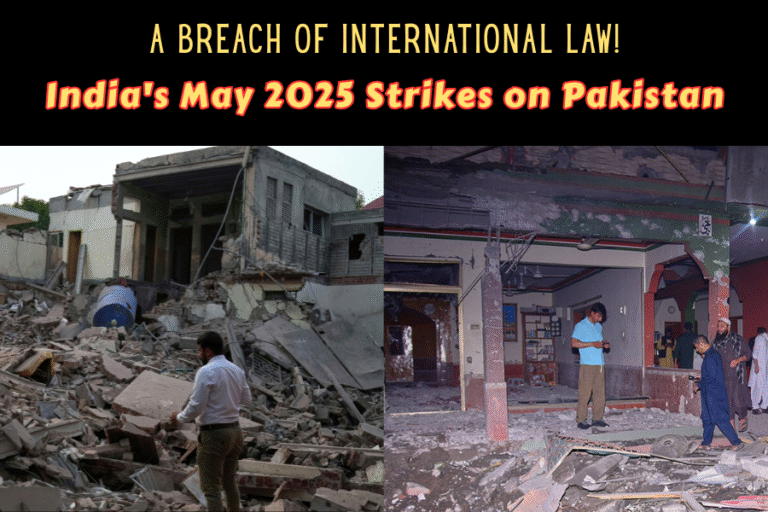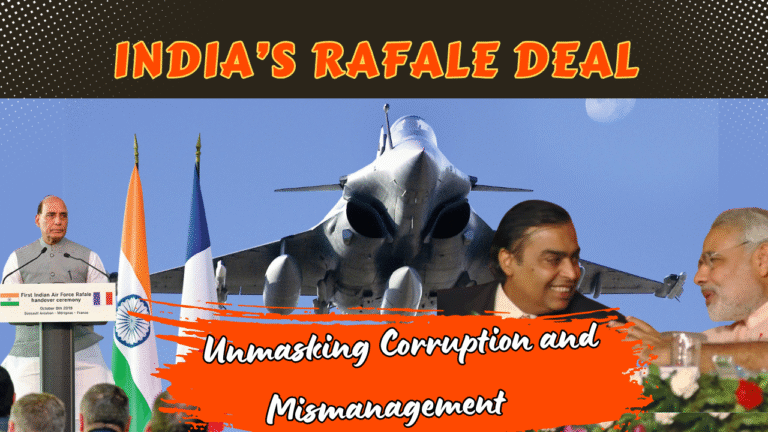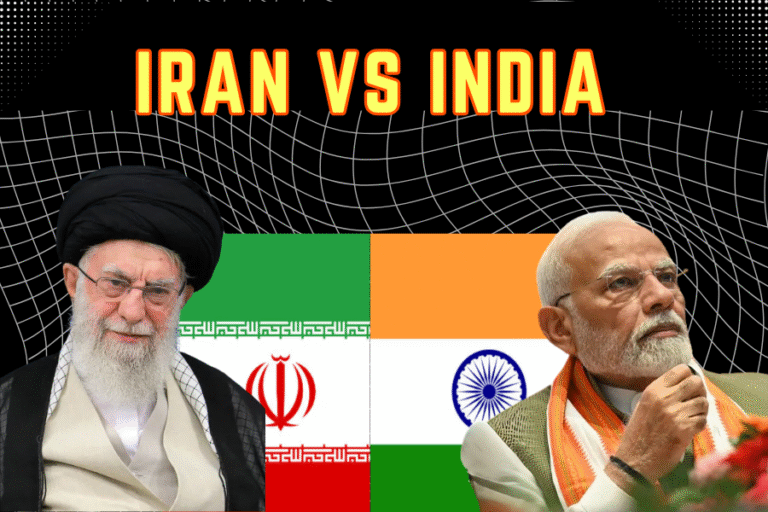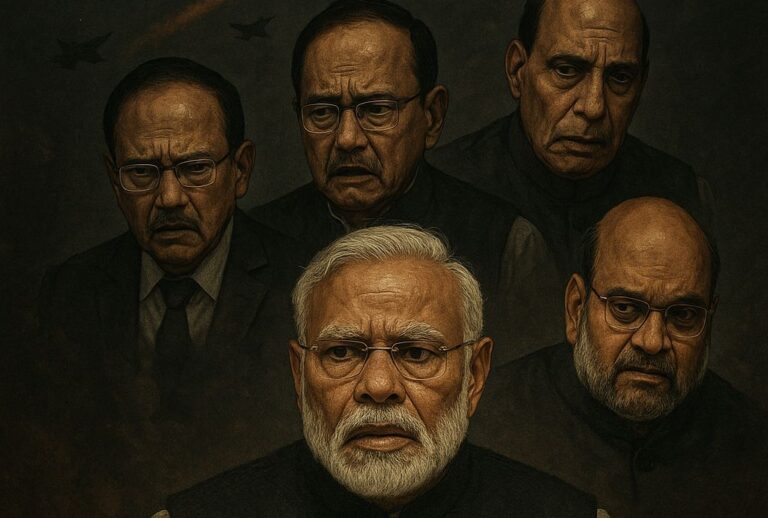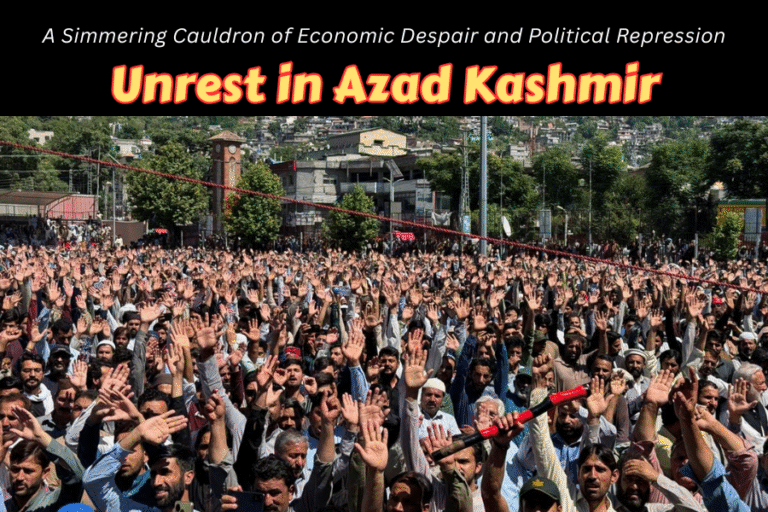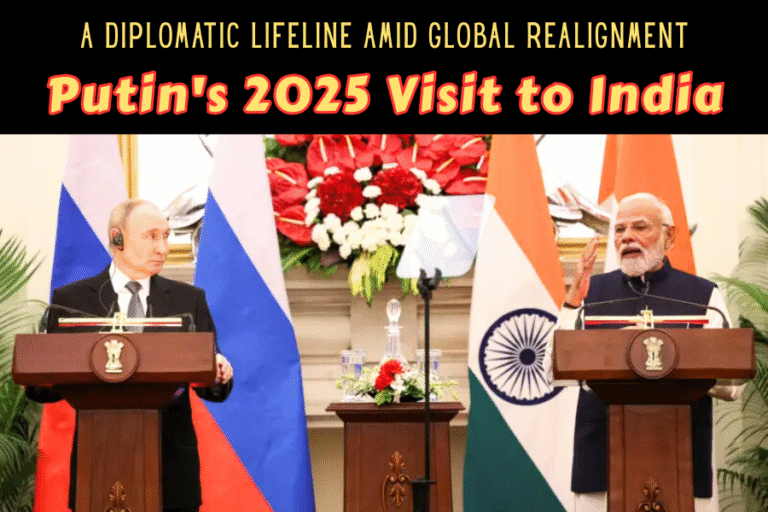(By Quratulain Khalid)
1. Introduction
India proudly declares itself the world’s largest democracy, with its Constitution enshrining secularism and religious freedom under Article 25. This provision guarantees every citizen the right to practice, profess, and propagate their faith. Yet, in a stark contradiction to these ideals, the 2025 Annual Report of the United States Commission on International Religious Freedom (USCIRF) has once again designated India as a “Country of Particular Concern” (CPC). The report accuses India of “systematic, ongoing, and egregious” violations of religious freedom, with a glaring focus on its treatment of its 200 million Muslim citizens.
This damning assessment, repeated year after year, is not merely symbolic. It signifies an alarming erosion of India’s pluralistic character, where intolerance has gradually replaced coexistence, and law has increasingly become a tool of marginalisation. This article aims to unearth the deep and dangerous layers of discrimination—legal, social, institutional—that Muslims in India face today. We explore not only the sources and manifestations of this persecution but also chart a roadmap for reform to preserve the soul of Indian democracy.
2. International Assessment
The USCIRF’s 2025 CPC designation is a stark indictment. Citing laws like the Citizenship Amendment Act (CAA) and sweeping anti-conversion legislations, the report warns of a “deteriorating and concerning trajectory” for religious freedom in India. This marks the fifth consecutive year of India being listed as a CPC, indicating persistent and worsening violations.
What makes India’s case exceptional is the sheer scale of affected lives—over 200 million Muslims—and the contradiction of such repression occurring in a democracy. Regionally, India now aligns with countries known for draconian religious laws, like Pakistan and Sri Lanka. But while those countries are often viewed through the lens of authoritarianism or sectarianism, India’s democratic image magnifies the international concern.
USCIRF’s recommendation for targeted U.S. sanctions on Indian officials, including those allegedly involved in extrajudicial actions abroad, signifies rising global alarm. It is not merely a diplomatic jab; it is a clarion call to acknowledge India’s descent from its secular ideals.
3. Legal and Policy Discrimination
a. Facially Neutral Laws, Discriminatory Intent
Laws intended to curb “forced conversions,” passed in states like Uttar Pradesh, Gujarat, and Karnataka, cloak their real intent under legalese. These laws disproportionately target interfaith marriages, particularly when the groom is Muslim, feeding the pernicious myth of “love jihad.” The USCIRF has categorically stated that these laws permit arbitrary arrests and fuel communal paranoia.
Meanwhile, Muslim Personal Law—covering marriage, divorce, and inheritance—faces both structural bias and political scrutiny. While intended to preserve religious identity, it has become a double-edged sword. Outdated clauses and patriarchal norms within these laws often harm Muslim women, who suffer silently under the weight of both religious tradition and state neglect.
b. Restrictions on Religious Practices
In Karnataka and beyond, the banning of hijabs in schools and colleges has effectively barred thousands of Muslim girls from education—not just an attack on modesty but a calculated exclusion from empowerment. The 2025 USCIRF report lists this as a critical violation of religious liberty.
Anti-cow slaughter laws have transformed into tools of terror. Armed vigilantes, emboldened by state silence or support, target Muslim cattle traders and butchers, often resulting in brutal lynchings. Since 2014, over 50 such cases have been reported—a number likely undercounted due to fear and underreporting.
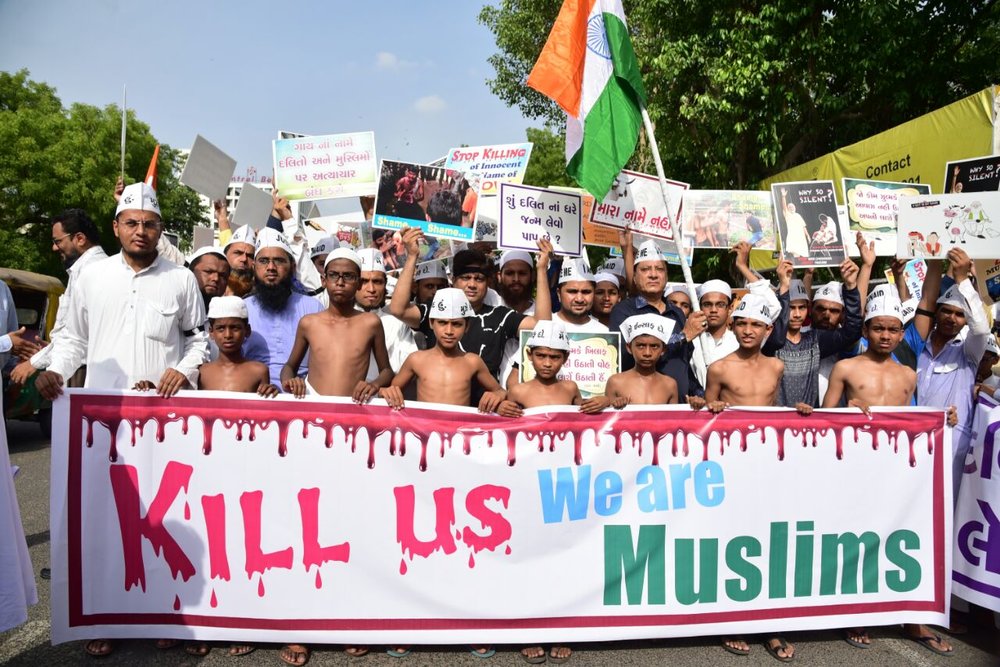
4. Social and Institutional Bias
a. Policing and Prejudice
Institutionalised bias is perhaps the most chilling form of discrimination. The 2019 SPIR report revealed that nearly half of India’s police personnel believe Muslims are naturally predisposed to crime. This perception has lethal consequences. From mob lynchings to custodial deaths, police inaction or complicity has become the rule rather than the exception.
In BJP-ruled states like Uttar Pradesh, there are mounting reports of police shielding perpetrators or even participating in violence against Muslims. Such actions shatter trust in law enforcement, turning victims into suspects.
b. Communal Violence and Impunity
Mob justice has become the new normal. Whether driven by allegations of cow slaughter or land disputes, Muslim communities are frequently the targets of orchestrated violence. Mosque demolitions in Delhi and Gujarat, cloaked as anti-encroachment operations, are often timed with political rallies or religious festivals—revealing a calculated intent.
Despite widespread outrage on social media, justice is elusive. Perpetrators enjoy political patronage, while victims are left to navigate a broken system with little hope of redress.
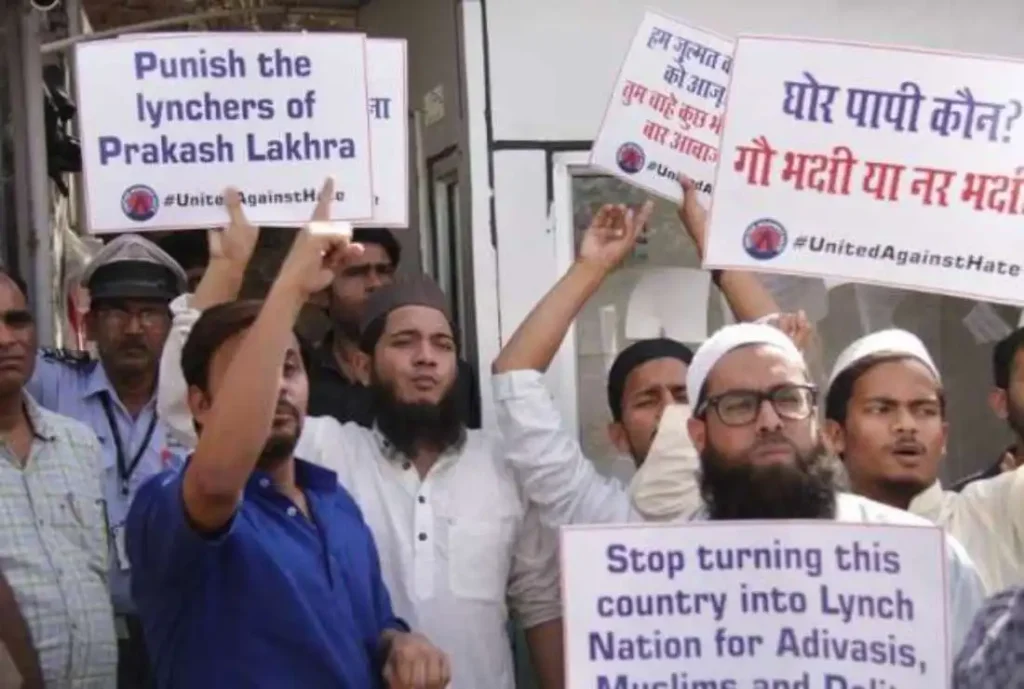
5. Socioeconomic Discrimination
Discrimination goes beyond violence; it seeps into livelihoods. In housing, banking, education, and jobs, Muslims routinely face exclusion. In cities like Mumbai, Bangalore and Delhi, landlords openly deny Muslims tenancy. Banks reject loans. Employers discriminate silently but systematically.
The 2006 Sachar Committee warned of these disparities, but little has changed. Today, less than 5% of Muslims hold formal jobs. Despite being politically significant in many constituencies, Muslims remain underrepresented in governance and policymaking, perpetuating a cycle of disempowerment.
6. Political and Governance Dynamics
The rise of Hindutva ideology has redefined Indian politics. The BJP’s ascendance has coincided with a surge in anti-Muslim rhetoric, policies, and violence. The CAA and NRC, implemented most aggressively in Assam, threaten to render millions of Muslims stateless. Critics argue that these laws create a hierarchy of citizenship based on religion—a constitutional betrayal.
During the 2024 elections, hate speech became commonplace, with political leaders vilifying Muslims as “terrorists” or “infiltrators.” Far from being condemned, such speech was often rewarded with applause and votes.
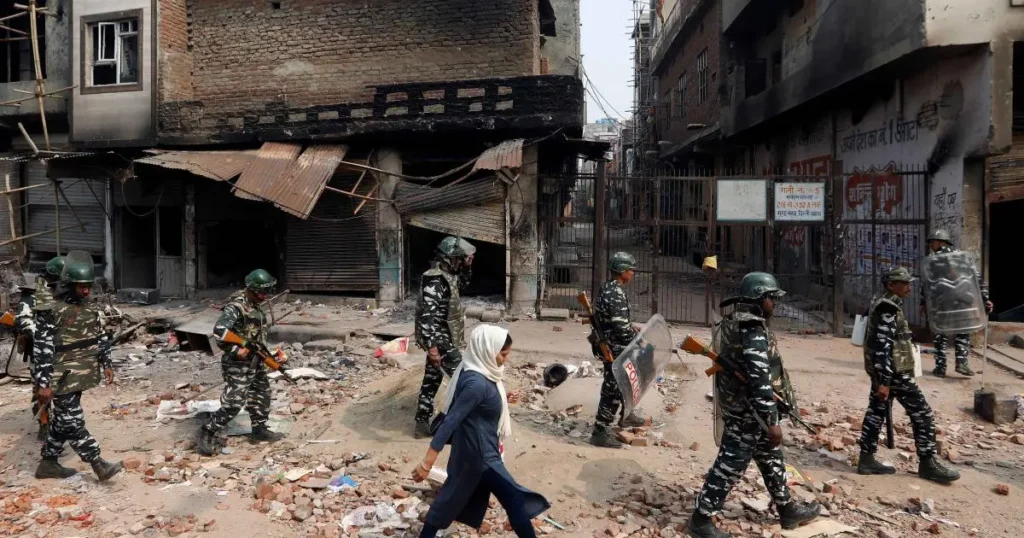
7. Impact on Religious Freedom
India’s actions not only violate Article 25 of its own Constitution but also breach international obligations under Article 18 of the ICCPR. When Muslims are denied the right to wear hijabs, build mosques, or even utter Islamic greetings without fear, it signals a full-scale assault on religious freedom.
This climate of fear is silencing a community. Religious expression is being replaced with self-censorship. Identity is being cloaked to avoid persecution.
8. Human Rights Implications and Consequences
The cumulative impact of these policies is devastating. Muslims feel alienated, disenfranchised, and unsafe. Many avoid public religious expression altogether. Communal trust is in tatters.
India’s global reputation is also at stake. The CPC label, repeated UN criticisms, and growing diplomatic concern threaten its soft power and international partnerships. The illusion of being a pluralistic democracy is fading fast.
9. Recommendations
- Legal Reform: Repeal or significantly amend anti-conversion laws and CAA provisions that target Muslims.
- Police Accountability: Implement rigorous anti-bias training and establish independent oversight of law enforcement.
- Justice System Reform: Expedite trials in hate crime cases; ensure protection for victims and witnesses.
- Gender Equity in Law: Reform Muslim Personal Law in consultation with scholars and women’s groups to ensure fairness.
- Civic Dialogue: Launch national campaigns for interfaith dialogue and harmony, using models like Kerala’s civic engagement initiatives.
10. Conclusion
India stands at a moral and constitutional crossroads. Will it uphold the secularism it promises in its founding charter, or continue its descent into majoritarianism? The systemic discrimination against Muslims, as documented by USCIRF and other rights bodies, cannot be ignored.
Safeguarding religious freedom is not just a domestic imperative—it is a global one. India must confront its demons, legislate with justice, and return to the inclusive values of Gandhi and Ambedkar. Only then can it reclaim its rightful place as the world’s largest democracy—one that belongs to all its citizens, regardless of faith.

